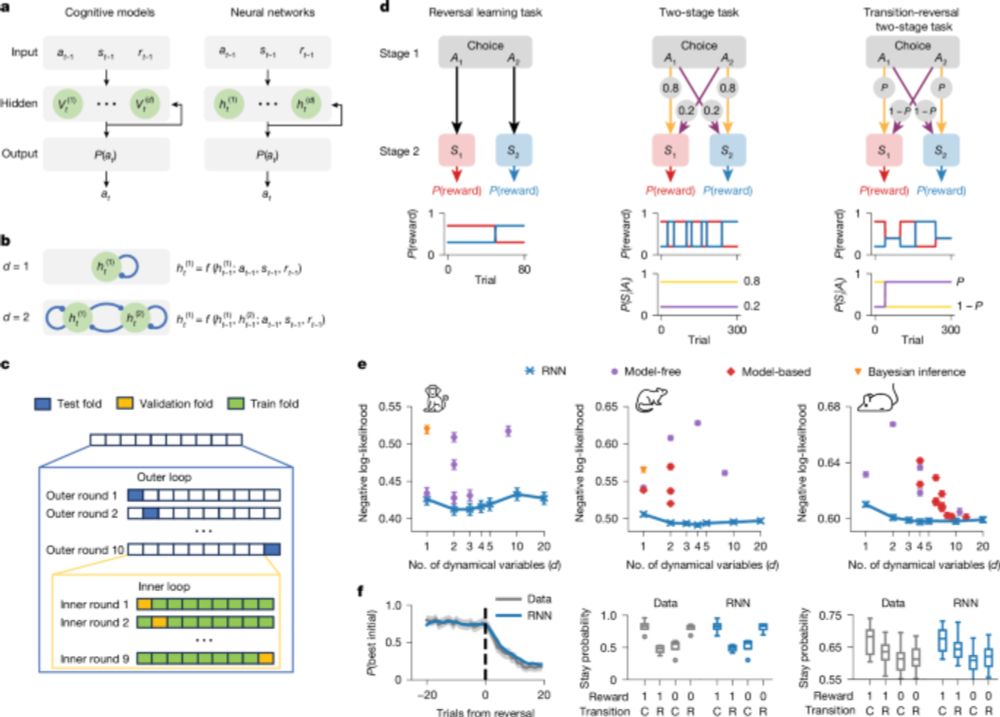todoist! You may use it as a simple to-do-list but you can also go wild and create projects, tasks, subtasks, set priorities, dates, etc. I guess that you get basic collaboration functionality with the free version, and would have to pay for the more advanced features
05.01.2026 15:21 — 👍 1 🔁 0 💬 0 📌 0


A thread of directed acyclic graphs (DAGs) that look like record covers... because that's EXACTLY what the world needs
1. Huey Lewis and the News: link.springer.com/chapter/10.1...
28.11.2025 11:30 — 👍 168 🔁 64 💬 9 📌 7
Friends in Budapest, check out these great talks next week :)
26.11.2025 12:15 — 👍 3 🔁 0 💬 0 📌 0
Amazing, thanks so much!
23.10.2025 15:17 — 👍 4 🔁 0 💬 0 📌 0
and @florahann.bsky.social is here too!
13.09.2025 15:37 — 👍 0 🔁 0 💬 0 📌 0
What a wonderful book indeed!
05.09.2025 11:54 — 👍 1 🔁 0 💬 0 📌 0
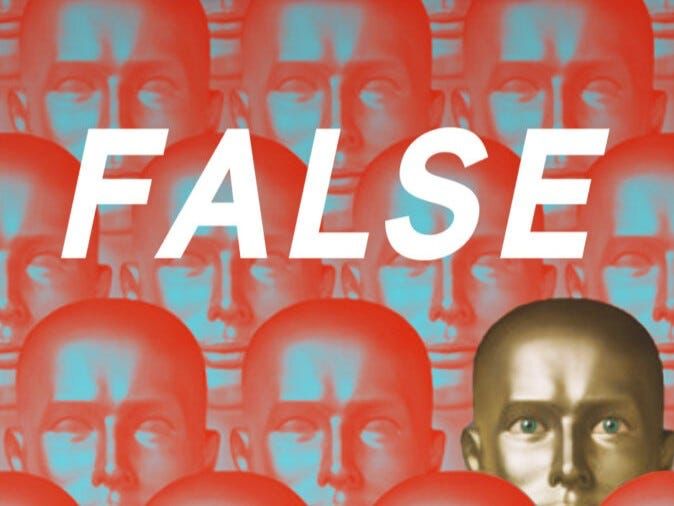
Machinery of Misbelief
A psychiatrist tackles the psychology of false beliefs in the misinformation age
Machinery of Misbelief
A psychiatrist tackles the psychology of false beliefs in the misinformation age
My review of Joe Pierre’s ( @psychunseen.bsky.social ) book “False” (OUP, 2025)
www.psychiatrymargins.com/p/machinery-...
30.08.2025 13:02 — 👍 21 🔁 9 💬 0 📌 2
Fascinating! Congrats, Tamás!
11.07.2025 12:06 — 👍 1 🔁 0 💬 0 📌 0
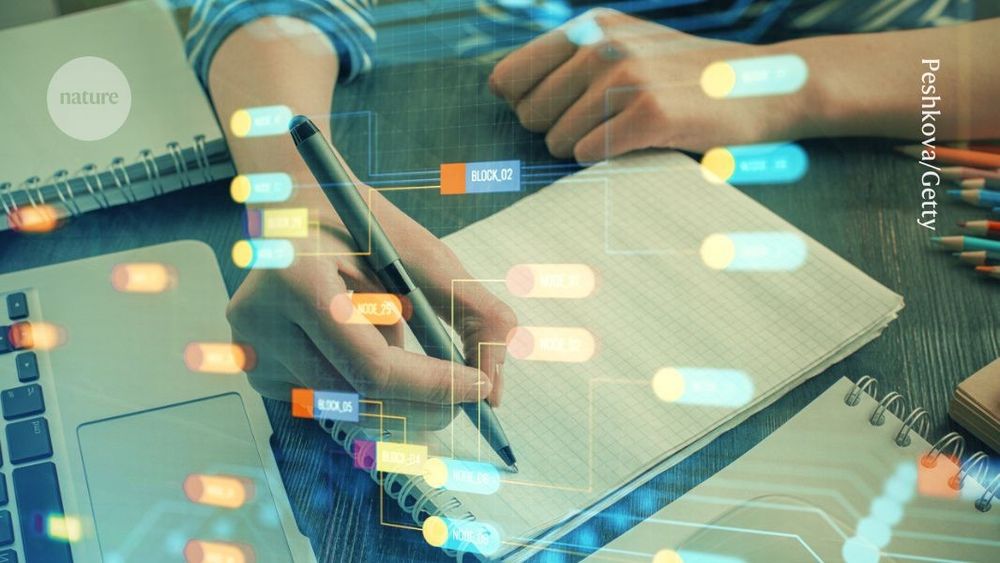
AI, peer review and the human activity of science
When researchers cede their scientific judgement to machines, we lose something important.
A few months ago, Nature published how-to guide for using ChatGPT to write your peer reviews in 30 minutes.
This is, of course, a horrible idea. Here’s my response with @jbakcoleman.bsky.social .
25.06.2025 13:01 — 👍 593 🔁 233 💬 16 📌 25
Number 52 it is ;)
27.05.2025 09:53 — 👍 1 🔁 0 💬 0 📌 0
What a great pleasure to be back in Leuven and hear about amazing research at the #saa2025 ! If you are interested in Pavlovian biases vs. regulating mood with fun activities and rumination under stress, please come by our poster this afternoon - w/ Hanneke den Ouden and @leventeronai.bsky.social
27.05.2025 06:48 — 👍 8 🔁 2 💬 1 📌 0
@leventeronai.bsky.social made it to bsky in the meantime !
15.05.2025 12:03 — 👍 1 🔁 0 💬 0 📌 0
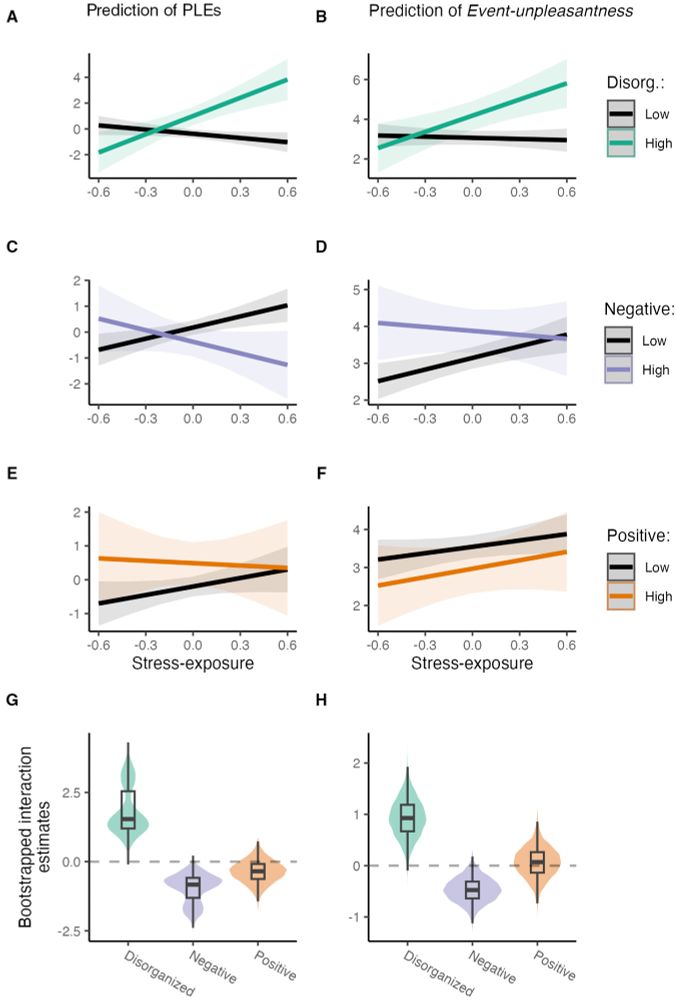
New ESM study out in J Pers! 👀 We show that disorganized schizotypy specifically predicts both psychotic- and stress-reactivity in response to social, economic, and health-related stressors - thanks a lot Levente Rónai, Flóra Hann, and Szabolcs Kéri onlinelibrary.wiley.com/doi/full/10....
15.05.2025 08:50 — 👍 11 🔁 4 💬 2 📌 0
I can totally second that! This is such an interesting and relevant study, congratulations. We were trying to wrap our head around this issue for a measure of stressor exposure in an esm study and arrived at quite similar conclusions. Great to see this written up so neatly!
22.04.2025 16:16 — 👍 2 🔁 0 💬 1 📌 0
Wow, congratulations!
20.03.2025 08:07 — 👍 1 🔁 0 💬 0 📌 0
I see, thanks a lot for the response!
24.02.2025 18:52 — 👍 0 🔁 0 💬 0 📌 0
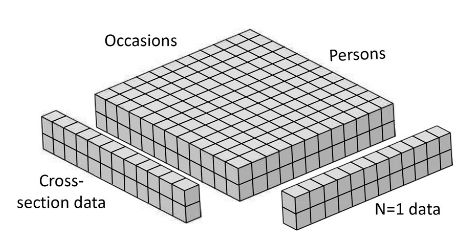
What is reflected in the cross-sectional correlation? How does it relate to associations at the level of stable individual differences vs. correlations within individuals over time? It really depends! And it's hard to know without intensive longitudinal data.
www.tandfonline.com/doi/full/10....
19.02.2025 16:27 — 👍 1 🔁 0 💬 0 📌 0
Looks fascinating! Quick question (without having thoroughly read the paper): how does this align with the optimism bias literature?
18.02.2025 19:46 — 👍 0 🔁 0 💬 1 📌 0
OSF
Very happy that this preprint (I'm 2nd author & taking over for the bluesky-less Vanessa Scholz) is finally out!
In a large online sample, we investigated how Pavlovian/motivational biases are associated with psychiatric symptom dimensions (as first defined by Claire Gillan)..
osf.io/preprints/ps...
12.02.2025 14:49 — 👍 11 🔁 5 💬 1 📌 1
Fascinating!!! The link does not seem to work for me though and could not find your preprint with google (scholar) neither
05.02.2025 10:56 — 👍 2 🔁 0 💬 1 📌 0
Quite a few studies show attractive integration between perception and imagery/VWM such that e.g. imagining a left-tilted grating makes a perceived grating seem more left-tilted. Does anybody know of any studies showing repulsion? I.e. making the perceived grating seem more right-tilted?
21.01.2025 11:55 — 👍 23 🔁 6 💬 8 📌 0
English-speaking readers, this one is worth your time:
05.01.2025 10:44 — 👍 28 🔁 7 💬 1 📌 0
A great causal inference reading list!
22.12.2024 08:48 — 👍 4 🔁 1 💬 0 📌 0
And I'd also consider the overall compliance in your study and the % of the observations in question - does it make any difference in the end? If there's a lot of them, what bias could be introduced by throwing them away, and are you fine with that?
19.12.2024 22:47 — 👍 0 🔁 0 💬 1 📌 0
I see! Let's assume these are occasions when nothing bad happened and they just want to indicate that by picking the lowest value. I'd guess such occasions would provide sort of a baseline - maybe you meant this by using them as a neutral?
19.12.2024 22:45 — 👍 1 🔁 0 💬 1 📌 0
Canadian epidemiologist and causal inference person at Erasmus Medical Center. Big fan of Northern Expsoure and Car Talk.
jeremylabrecque.org
Juan C. Castro-Alonso. Rewarded hubby & daddy. Educational psychology, multimedia, STEM, biochemistry, spatial working memory. Asst. Professor at University of Birmingham (UK), Author, Speaker, Editor, Consultant
Obsessed with data graphics. I design high‑stakes charts.
Founder, Visionary Press • CHARTOGRAPHY weekly
Talks • workshops • consulting → infowetrust.com
a multilingual biological psychologist, studying the modulation of mood and cognition via the microbiota-gut-brain axis.
www.boushradalile.com
Dynamics of Living Systems (https://www.frohlichlab.com) group leader @thecrick.bsky.social Understanding signalling & cell state dynamics through mathematical modelling and machine learning.
Doctoral researcher at the University Medical Centre Hamburg-Eppendorf (UKE). Interested in memory, audition, semantics, neural coding, spiking networks.
http://mvpy.tools
Professor of Predictive Cognition at Faculty of Psychology @ruhr-uni-bochum.de
Emmy Noether Research Group Leader
PI @sfb-trr-289.bsky.social @ UKE Hamburg
https://blanklab.eu/
Grumpy IO psychologist with an interest in research methods, meta-science and personality. Views are my own and not those of my employer.
Begrawe my hart op Klein Tambotieboom en strooi my as oor die Bosveld horison
Unsere Social-Media-Supportkanäle findet ihr unter bahn.de/socialmedia
Presse-Anfragen beantworten wir unter presse@deutschebahn.com
Impressum & Datenschutz: https://www.deutschebahn.com/rechtliches
Director, @stanforddel.bsky.social
Professor Stanford Institute for Human-centered AI, SIEPR, Stanford department of Economics and GSB
Author https://amazon.com/Second-Machine-Age-Prosperity-Technologies/dp/0393350649
cogsci.nl/smathot Cognitive psychologist interested in perception, attention, and pupillometry. Developer of OpenSesame and other open-source scientific software. Writer of short stories (suchwasnot.com) and non-fiction (Een wereld vol denkers).
Assistant Professor at CU Boulder interested in multivariate genomic methods development and their application to understanding shared and unique signal across human disease and risk factors. Lab website: https://www.p-badger-lab.com/
Co-founder & editor, Works in Progress. Writer, Scientific Discovery. Podcaster, Hard Drugs. Advisor, Coefficient Giving. // Previously at Our World in Data.
Newsletter: https://scientificdiscovery.dev
Podcast: https://harddrugs.worksinprogress.co
🏳️🌈
Mexican Historian & Philosopher of Biology • Postdoctoral Fellow at @theramseylab.bsky.social (@clpskuleuven.bsky.social) • Book Reviews Editor for @jgps.bsky.social • https://www.alejandrofabregastejeda.com • #PhilSci #HistSTM #philsky • Escribo y edito
Applying Developmental Pscyh theory and research on adolescent emotion & regulation, parent-child interaction dynamics to more robust and informative understanding of youth digital experiences
Postdoc JLU Giessen — how is cognition realized by the brain? Oscillations aficionado, mind sciences omnivore, hip-hop head
sandervanbree.com
Established in 2024, SPAN is a philosophical and scientific society dedicated to providing a forum for the collaboration between philosophers and neuroscientists. philandneuro.com | thefeedback.blog
University of Michigan '24 | Depression & Stress Mechanisms, Mental Health Disparities in Youths | 🇲🇾 Nascent Poet
(she/her) UKRI FLF - Professor in Neuroscience. Started doing robotic/AI before it was cool, moved on to Neuroscience and now obsessed with Transcranial Ultrasound Stimulation.
Interested in how the rich stay rich and the poor poor. Sociologist at @sriucl.bsky.social @ucl.ac.uk. He/him/his. http://perengzell.com Photo bomber @simoneschneider.bsky.social




